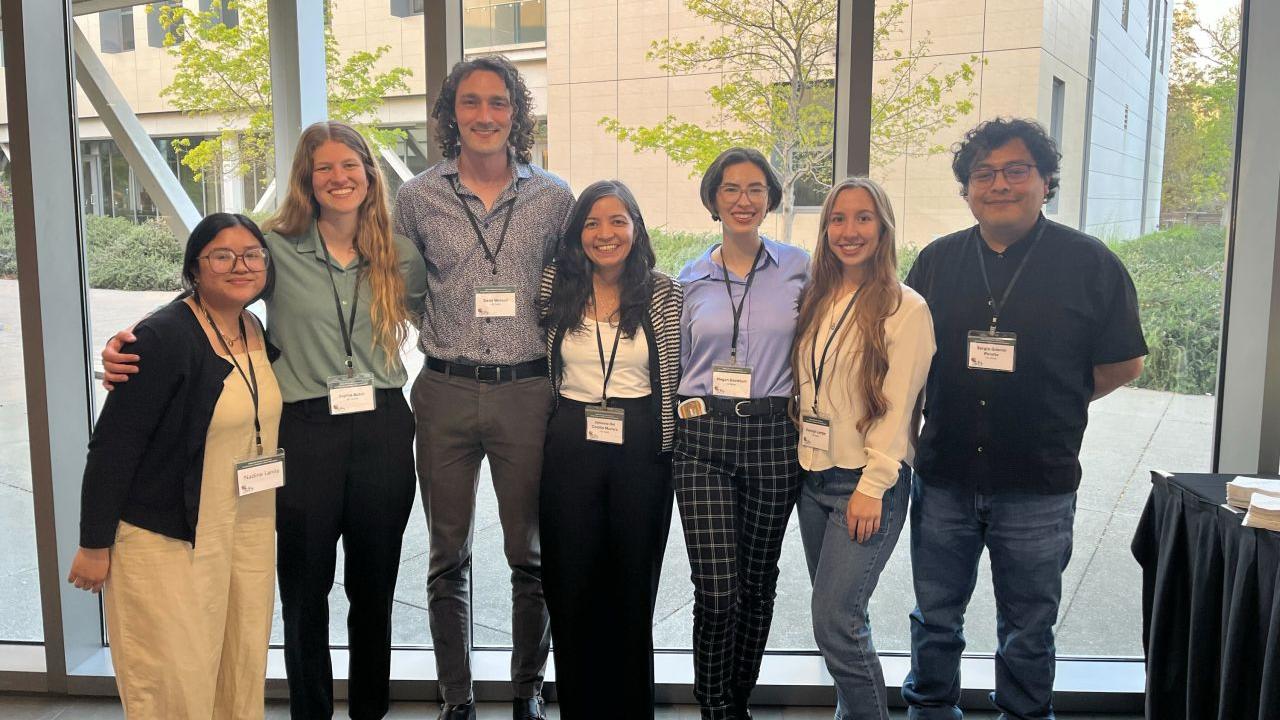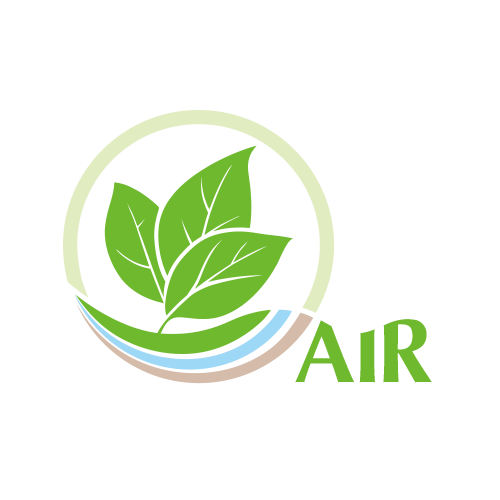
AIR Team Presents at the APS Pacific Division Meeting, 2025
The Accreditation to Improve Restoration (AIR) program team from the Del Castillo Lab here at UC Davis recently presented two posters at this year’s American Phytopathological Society (APS) Pacific Division annual meeting, hosted from March 25th- March 27th at the UC Davis Conference Center. Conference attendees included plant pathology researchers, ecologists, growers, stakeholders, and professionals from various public and private sectors in academia, government, and industry. These posters, presented by Dean Watson and Sophia Acker, highlighted our most recent research on the incidence of Pythium s.l. in native plant restoration nurseries and monitoring Phytophthora incidence at restoration sites in National Forests across California.
The first poster, titled "Evaluating soilborne Phytophthora and Pythium s.l. occurrence in California restoration nurseries participating in the Accreditation to Improve Restoration (AIR) program,” provided an overview of current AIR program status, which has grown to include 24 participating nurseries in Northern and Southern California, 10 of which are fully accredited, and reported an overview of the over 1,100 baiting tests on over 37,700 container plants performed by both the AIR Program and Phytosphere Research since the program’s inception in 2017. Notably, while Phytophthora has not been detected in any AIR BMP-compliant nursery stock to date, several species of Pythium sensu lato were detected during AIR program sampling in 2024 in participating nurseries across the state. Based on this testing, the team assessed the presence and diversity of Pythium s.l. in these nurseries and presented upcoming research to assess the potential impact of these pathogens on native plant production and restoration efforts.
The second poster, "Phytophthora species associated with ecological restoration sites at National Forests in Eastern and Northern California,” took AIR research from the nursery to the habitat restoration site, monitoring the health of restoration plantings at 18 different sites from 4 National Forests. Phytophthora species were identified from 13% of rhizosphere of restoration plants and nearby riverbed samples collected. These findings provide further insight into how Phytophthora may establish and persist in restoration landscapes, particularly in sensitive and remote forest ecosystems.
Presentations from the Del Castillo Lab also included "Investigating the pathogenicity of Pythium sensu lato in lettuce and cabbage seedlings to inform disease management in the vegetable transplant industry" presented by Kayleigh Lampe, "Unmasking Botrytis Blight: Characterizing Botrytis Populations and Resistance Profiles in California’s Greenhouse and Nursery Crops" presented by Megan Gastelum, and "Safeguarding raspberry seedlings for healthier crops by enhancing Phytophthora bishii detection using Recombinase Polymerase Amplification (RPA)" presented by Sergio Gabriel-Peralta.
For more information about the AIR Program, our BMPs, and current research, please see our Resources for Nurseries tab. Posters may be viewed in their entirety here, under Handouts and Materials, or by clicking the links above.
